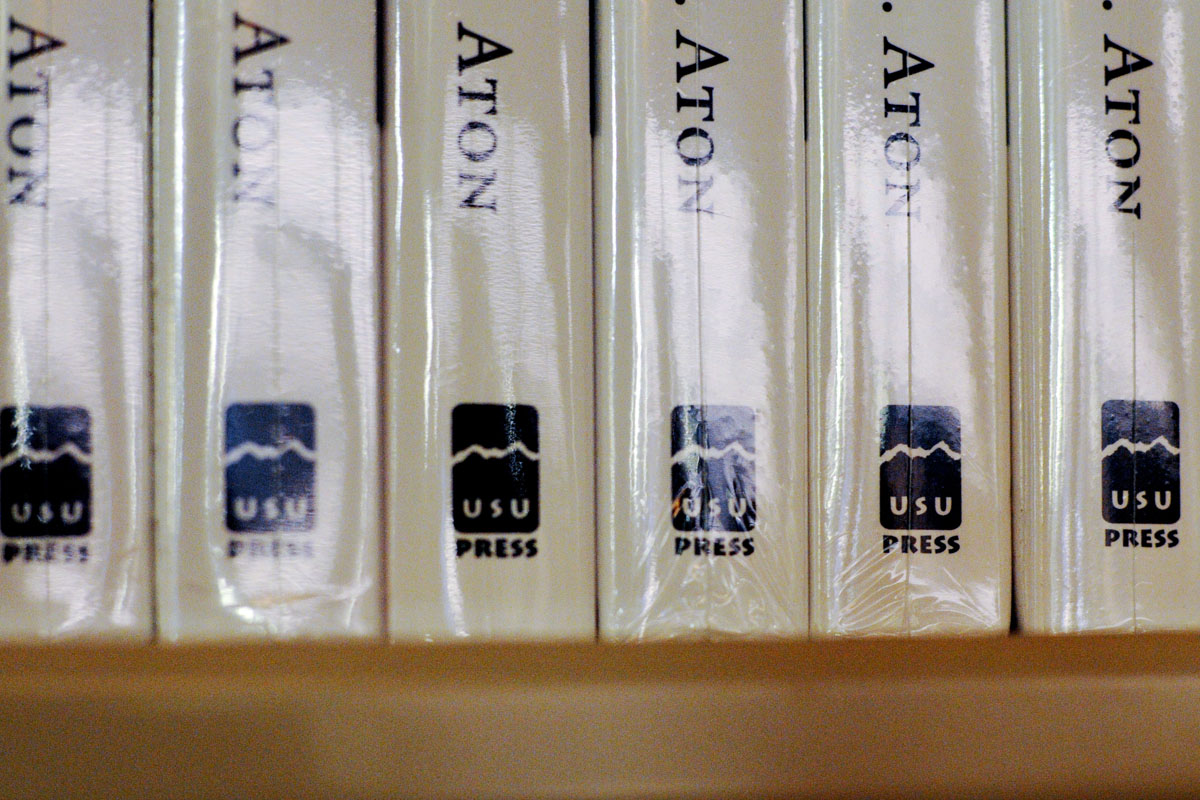Professors must ‘publish or perish’
Beyond teaching responsibilities, those in academia have an expectation to publish research on a yearly basis. Utah State University Press director Michael Spooner said the attitude is often expressed in the phrase, “publish or perish.” Spooner said often, faculty jobs depend on getting research into print.
Since any one publisher can only cover a finite set of fields, USU’s press focuses on certain fields, like folklore and western history, that ” represent the university, (these fields) reflect the university’s strengths,” Spooner said.
Jeff Broadbent, associate vice president for research, said, “We are a land grant university. Part of our mission is to translate discovery into practice, applied research.”
Faculty Research Week “is a way to raise the visibility and importance of research in the university,” Broadbent, also a dairy microbiology professor, said.
In addition to presentations and lectures, the week includes the presentation of the D. Wynne Thorne Career Research Award, which the university website states “is given to an individual on the USU campus who has completed outstanding research in his or her career. Nominees are evaluated for the significance and quality of their research and creative achievement and recognition by national and international experts.”
This year’s winner of the D. Wynne Thorne Career Research Award is David Lancy, professor of anthropology. Lancy’s research has produced a lengthy list of published work, including his recent piece “The Anthropology of Learning in Childhood.”
Lancy said research deals with the “never considered before.” With a focus on children and anthropology, he said he likes to attack the “sacred cows” of our ideas about children and our culture, which can seem very odd when viewed from a different perspective. Lancy has traveled with his research, usually one trip a year, both around the U.S. and internationally. Last year his research took him to Madagascar.
Broadbent said faculty attendance of conferences is also an important part of research.
“You have to go to conferences to remain up to date on research trends and to have interaction with research before it is even in a paper or a book. To be engaged it is inevitable to travel,” he said. “One of the unexpected pleasures of being a professor is to go to a lot of great places and meet a few people.”
The expectation for faculty to conduct research and to get that research published is intensified by the yearly meetings non-tenure staff have with professors of above rank to discuss the accomplishments of the year before.
Publication with a university press is a lengthy process. USU’s press has three full-time employees and churns out 15-20 new titles a year. Spooner said after an in-house review of a new manuscript and a peer review, the manuscript is read by a specialist in the field. Surviving that, the manuscript is reviewed by the Scholarly Publications Committee, which is, in function, an editorial board.
Christine Cooper-Rompato, assistant English professor, published her first book “The Gift of Tongues: Women’s Xenoglossia in the Later Middle Ages last year.” As part of faculty research week she is giving a presentation on her book March 30 at 5:30 p.m.
Cooper-Rompato was published at Pennsylvania State’s University Press in 2010. After a request for the full manuscript, it went out to readers to collect suggestions, and then after revising it was resent to readers. Cooper-Rompato said her book was read by many families and friends, and even her undergraduate teaching fellow aided in revisions by cross-checking the book’s entire bibliography.
Cooper-Rompato said the book is a better product because of all the hands it went through. The length of the time from her original idea almost 10 years ago to publication illustrates the amount of work involved. Now that her first book is a reality, Cooper-Rompato said she is already researching and developing ideas for another one. Meanwhile, she continues to write articles on different research topics.
Broadbent said research is an important aspect of the university.
“Research is often the catalyst for new technologies and new technologies often have an impact on jobs. We are think-tanks where new ideas blossom into new companies and jobs,” he said.
Though Broadbent is currently not teaching due to his administrative duties, he continues to do research and still publishes frequently.
A list of recently published faculty-authored books on the USU Press website shows that professors have taken the idea to publish or perish seriously. Broadbent said that even with the pressure to publish, “you have to be self-motivated to be involved in research.”
– genevieve.draper@aggiemail.usu.edu

